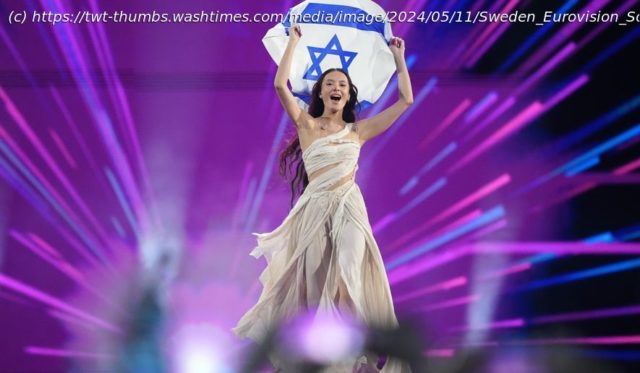The final of the 68th Eurovision Song Contest took the stage Saturday in the Swedish city of Malmo after days of protests and offstage drama that have tipped the feelgood musical celebration into a chaotic pressure cooker overshadowed by the war in Gaza.
The final of the 68th Eurovision Song Contest took the stage Saturday in the Swedish city of Malmo after days of protests and offstage drama that have tipped the feelgood musical celebration into a chaotic pressure cooker overshadowed by the war in Gaza.
A raucous Croatian rocker, a nonbinary Swiss performer with a soaring voice and – contentiously – a young Israeli singer with a powerful ballad were among favorites to win the competition, which pits nations against one another for the continent’s musical crown.
Before the final, thousands of pro-Palestinian demonstrators marched through Malmo to oppose the participation of Israel. A small group – including climate activist Greta Thunberg – was escorted by police from the area around the Malmo Arena venue.
Separately, Dutch contender Joost Klein was expelled from the contest over a backstage altercation that is being investigated by police.
Competition organizer the European Broadcasting Union said a female member of the production crew had made a complaint against Klein. The organizer said it wouldn’t be appropriate for Klein to participate at the event while the legal process was underway.
Klein, a 26-year-old Dutch singer and rapper, had been a favorite of both bookmakers and fans with his song “Europapa.”
Dutch broadcaster AVROTROS, one of dozens of public broadcasters that collectively fund and broadcast the contest, said that as Klein came offstage after Thursday’s semifinal, he was filmed without his consent and in turn made a “threatening movement” toward the camera.
The broadcaster said Klein didn’t touch the camera or the female camera operator, and called his expulsion a “very heavy and disproportionate” punishment.
The protests and dissent are overshadowing a competition that has become a campy celebration of Europe’s varied – and sometimes baffling – musical tastes and a forum for inclusiveness and diversity with a huge LGBT following.
Home
United States
USA — Music Eurovision Song Contest final takes stage after protests, backstage chaos and contestant’s...






